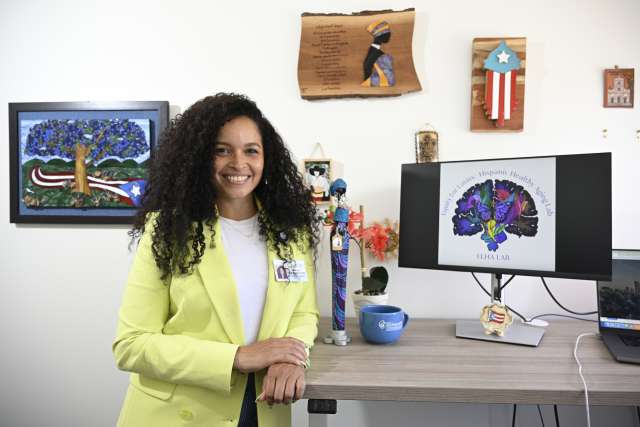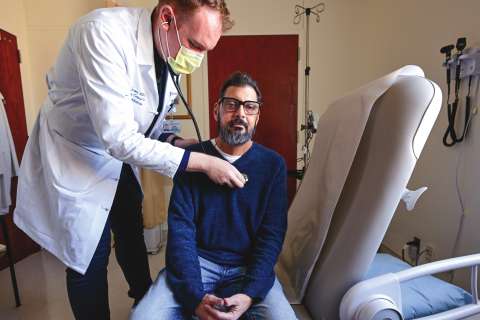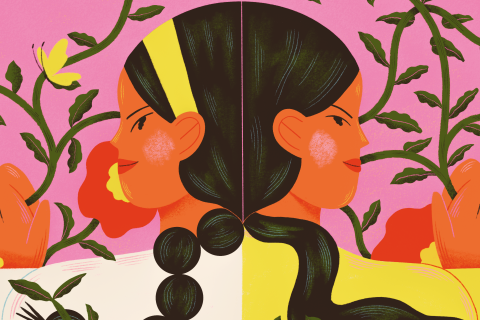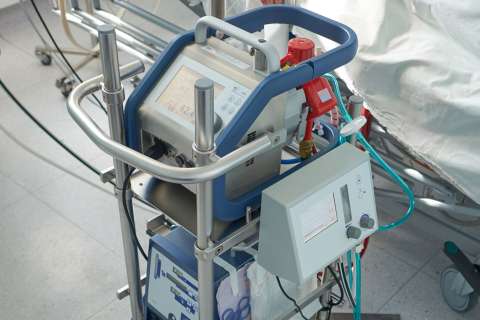West Angeles Church of God in Christ is used to hosting large events. The historically Black church in the Crenshaw neighborhood of Los Angeles has 24,000 members. But staff were surprised when 368 church members reserved their seats at an awareness and education event about Alzheimer’s disease and related dementias. They had expected only 250.
“The problems and issues associated with Alzheimer’s and other diseases may seem insurmountable, but together we can support and strengthen each other,” said Charles E. Blake II, the church’s pastor, during the Faith & Healing luncheon.
The event was organized collaboratively by the church, the nonprofit Alzheimer’s Los Angeles and UCLA Health, and was an opportunity for the community and church members to hear from and interact with physicians and researchers from the Mary S. Easton Center for Alzheimer’s Research and Care at UCLA.
In an effort to expand research and care opportunities, the UCLA Easton Center is prioritizing outreach to racial and ethnic minorities, including 45 annual education presentations with more than 100 community partners and a dedicated Latinx/Hispanic research lab.
“We have disparities that lie around what causes the disease and also around care opportunities,” said Jason Hinman, MD, PhD, interim co-director of the UCLA Easton Center and associate professor-in-residence in the department of neurology at the David Geffen School of Medicine at UCLA.
“Most of the clinical studies that have been conducted have not included even a true minority of underrepresented populations.”
Dr. Hinman said Alzheimer’s disease and related dementias are a major public health challenge. Right now, there are 6.5 million Americans diagnosed with Alzheimer's. By 2060, with an aging population, it will more than double, to nearly 14 million.
And as the U.S. becomes a majority-minority nation, Black and Latino groups will be most affected. Already, older Black Americans are twice as likely to have Alzheimer’s compared with white Americans.
There is a “high” number of families affected by the disease who are served through West Angeles Church, according to Paula Litt, PhD, who heads the Counseling Center. Many of them were present at the Faith & Healing luncheon.
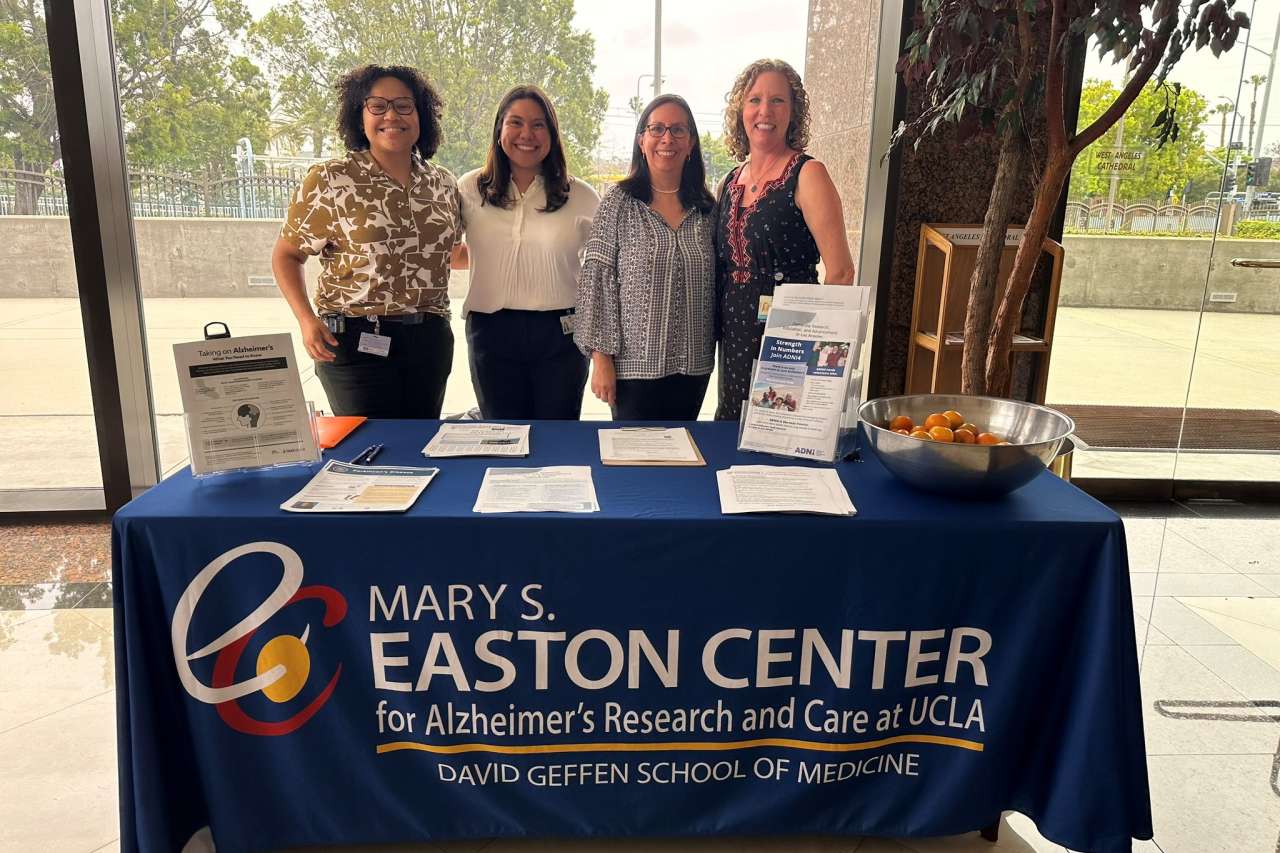
“There were medical providers who were sharing clinical information in layman's terms, and the people absolutely loved it,” said Dr. Litt. “They connected to statements about hearing or vision affecting your memory.”
Dr. Litt said for weeks after the Faith & Healing luncheon, she received phone calls from attendees, mostly about accessing care resources.
The presentation also included information about clinical trials and research, which Dr. Litt explained has been historically perceived in Black communities as experimentation without seeing any benefits.
“Seldom do researchers and providers come back to our community and say how this research affects them in an interactive setting,” she said. “What was different about this particular encounter was that information was given and providers and researchers stayed there to answer questions. The format was interactive from the moment people walked in the door until the moment they left.”
A grandmother’s legacy
When Mirella Díaz-Santos, PhD, was in college, her grandmother passed away from complications due to Alzheimer’s disease.
Now Dr. Diaz-Santos heads Equity for Latinx-Hispanic Healthy Aging at the UCLA Easton Center. She called the lab an “act of love” for her grandmother, and focuses on breaking down the structural and social drivers that contribute to Latinos being 1.5 times as likely to have Alzheimer’s compared with white people.
“I don't want (my grandmother’s) story to repeat itself,” said Dr. Díaz-Santos, an assistant professor-in-residence in the department of neurology at the David Geffen School of Medicine at UCLA. “We partner with community stakeholders to create interventions that increase access to care, and then to increase access to clinical trials.”
These structural drivers range from the micro to the macro. For example, a person’s ability to participate in clinical trials can be hindered because they are located far from home; the money needed to get to that location and the freedom to take time off work; and if the research is only conducted in English. In addition, the lack of health insurance is a substantial barrier: Why participate when the outcomes may only benefit the insured?
On a larger scale, significant drivers are neighborhood segregation and lack of access to resources; education in early childhood; and racism and discrimination which result in stress and increased cortisol levels. And similar to the Black community, there is a distrust and inherent hesitation to participate in research.
Dr. Díaz-Santos said her first intervention is often education and awareness. And though “my lab is nothing if I don't have communities as partners,” she does not have an automatic buy-in.
“It doesn't matter that I know the language and I am a Latina,” she said. “The moment I say I'm a researcher, they are going to have a lot of questions. ‘What's your intention with us?’ ‘You need to prove to me that you're trustworthy.’ I have to explain myself constantly, to prove my credibility constantly. It’s very humbling. And I'm all about it because they should be like that.”
In order to build trust, Dr. Díaz-Santos has begun a training program for research assistants and clinical coordinators to develop cultural, linguistic and scientific competency to communicate effectively with community members about research and clinical trials.
Her efforts will be bolstered by a recent donation to the Katherine & Benjamin Kagan Alzheimer's Disease Treatment Program which will allow for more recruitment of bilingual staff.
Genetic risks
Diversifying research and clinical trials is crucial to understanding the genetic risks associated with Alzheimer’s disease.
For example, it’s known that an individual is at much higher risk of developing Alzheimer’s with two copies of the APOE-4 gene. But that only applies to some of the population.
“You're at a 16-fold increased risk of developing Alzheimer's disease in your lifetime,” said Dr. Hinman. “But that's only true if you’re Caucasian. If you're Hispanic, it's only about a three-fold risk, even though prevalence rates of Alzheimer’s disease are much higher in the Hispanic community.”
That points to the possible role of other genes, as yet unknown, for Black and Latino individuals.
A recent $1 million donation from the Kessler Family Foundation will help UCLA Easton Center researchers to recruit a greater diversity of people with Alzheimer’s and then try to understand how genetic backgrounds are distinct, a path to identifying new genes.
